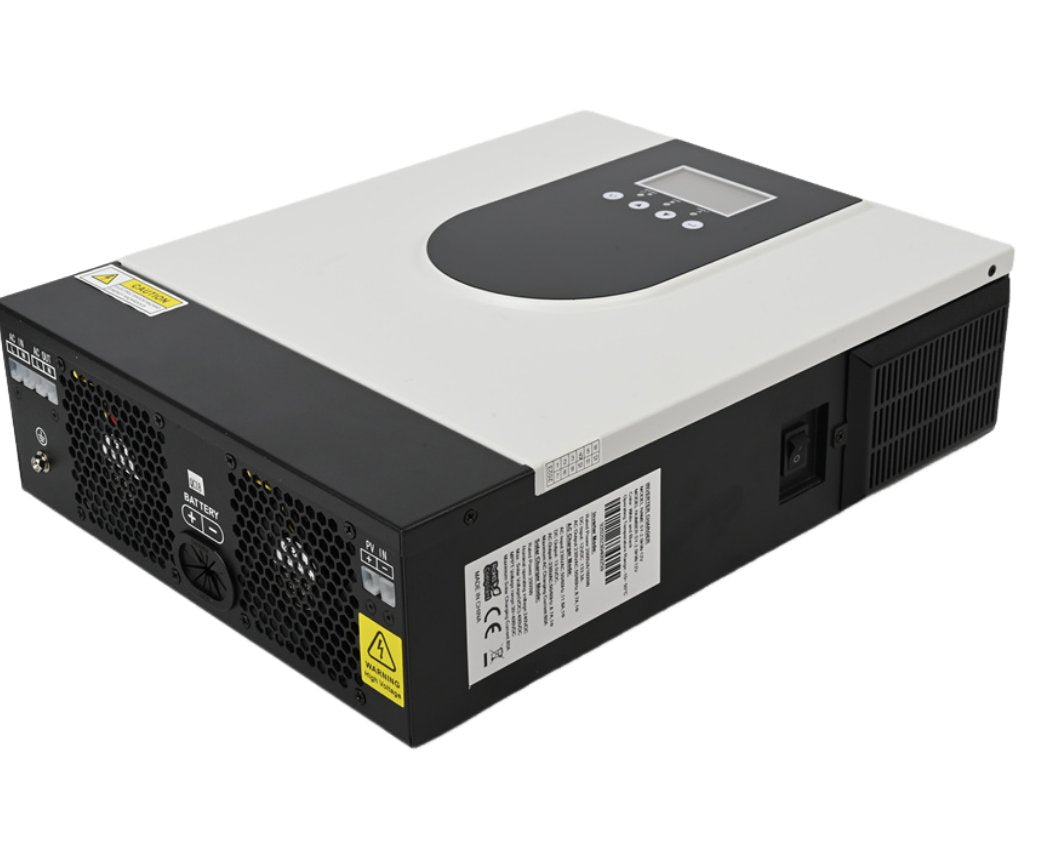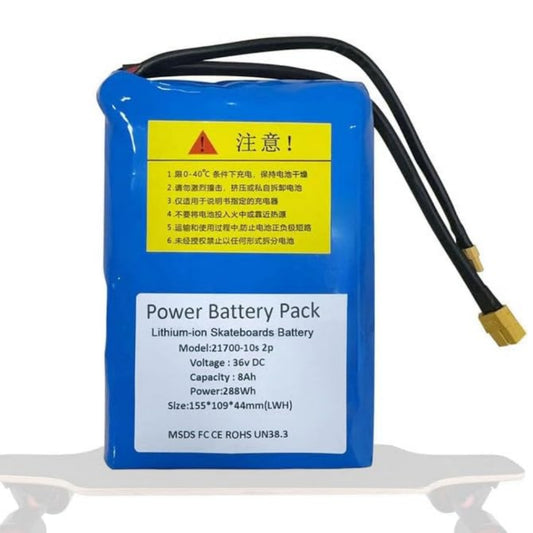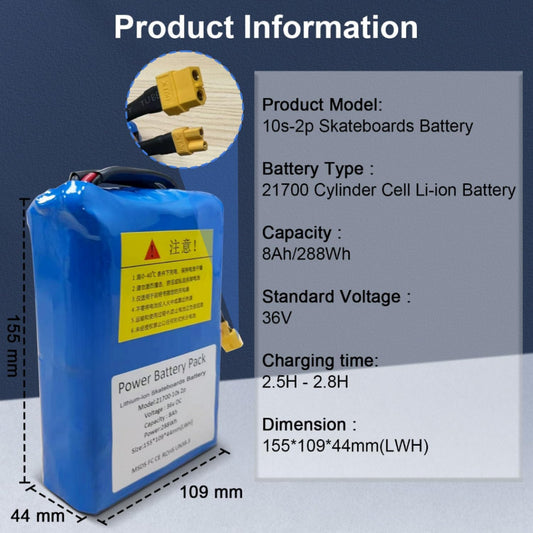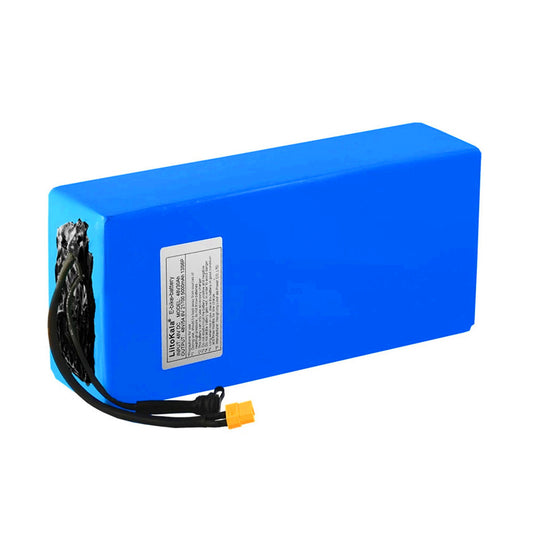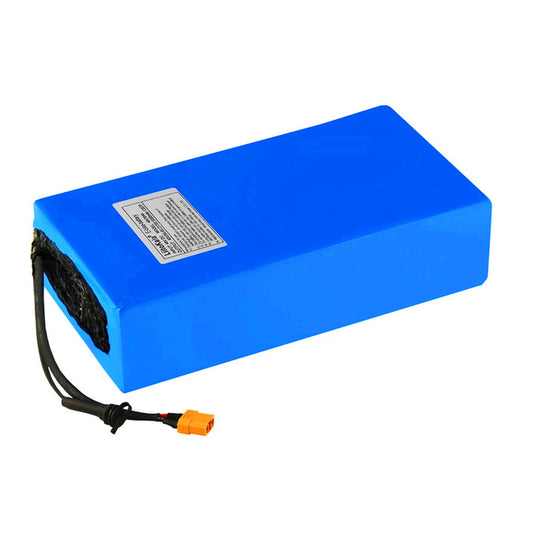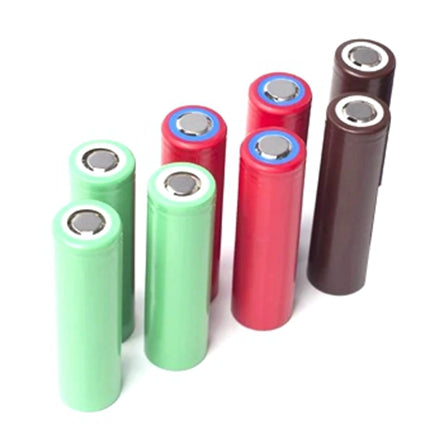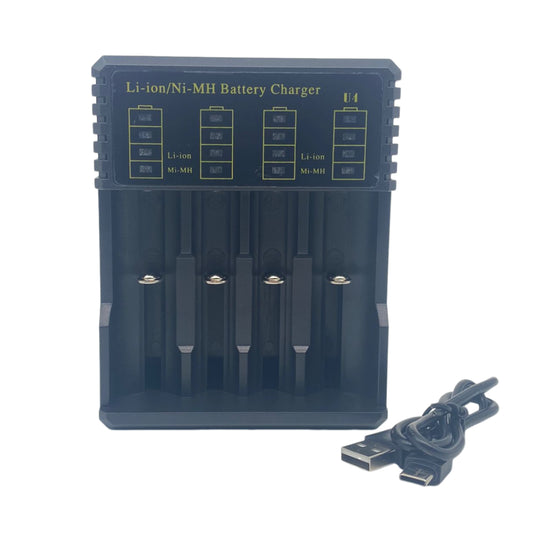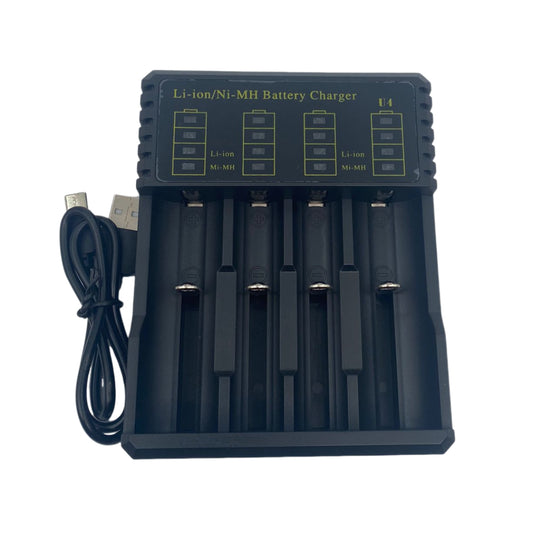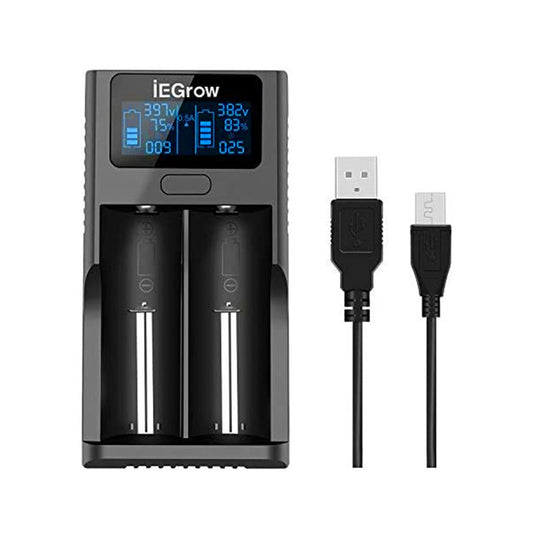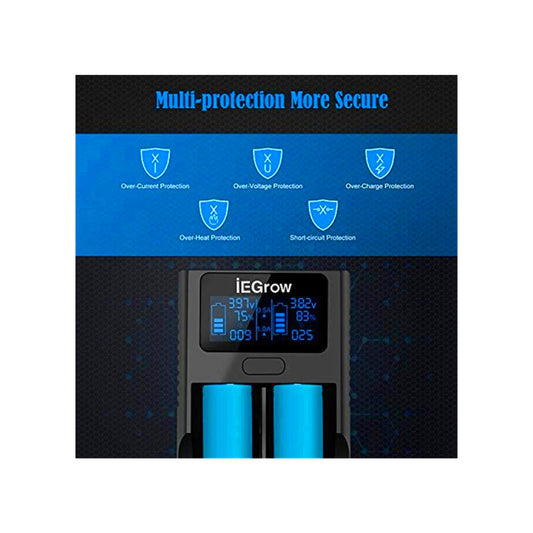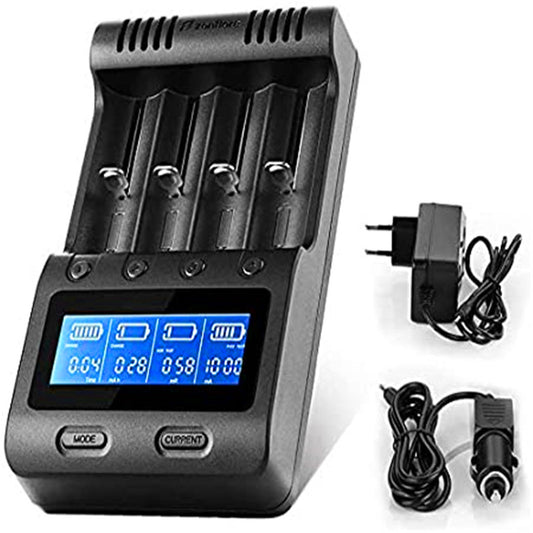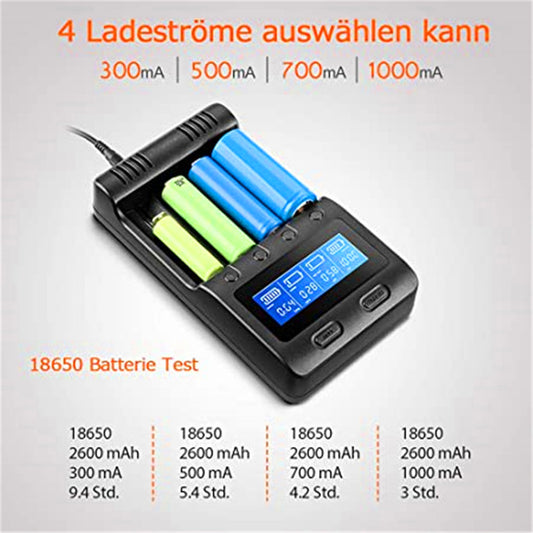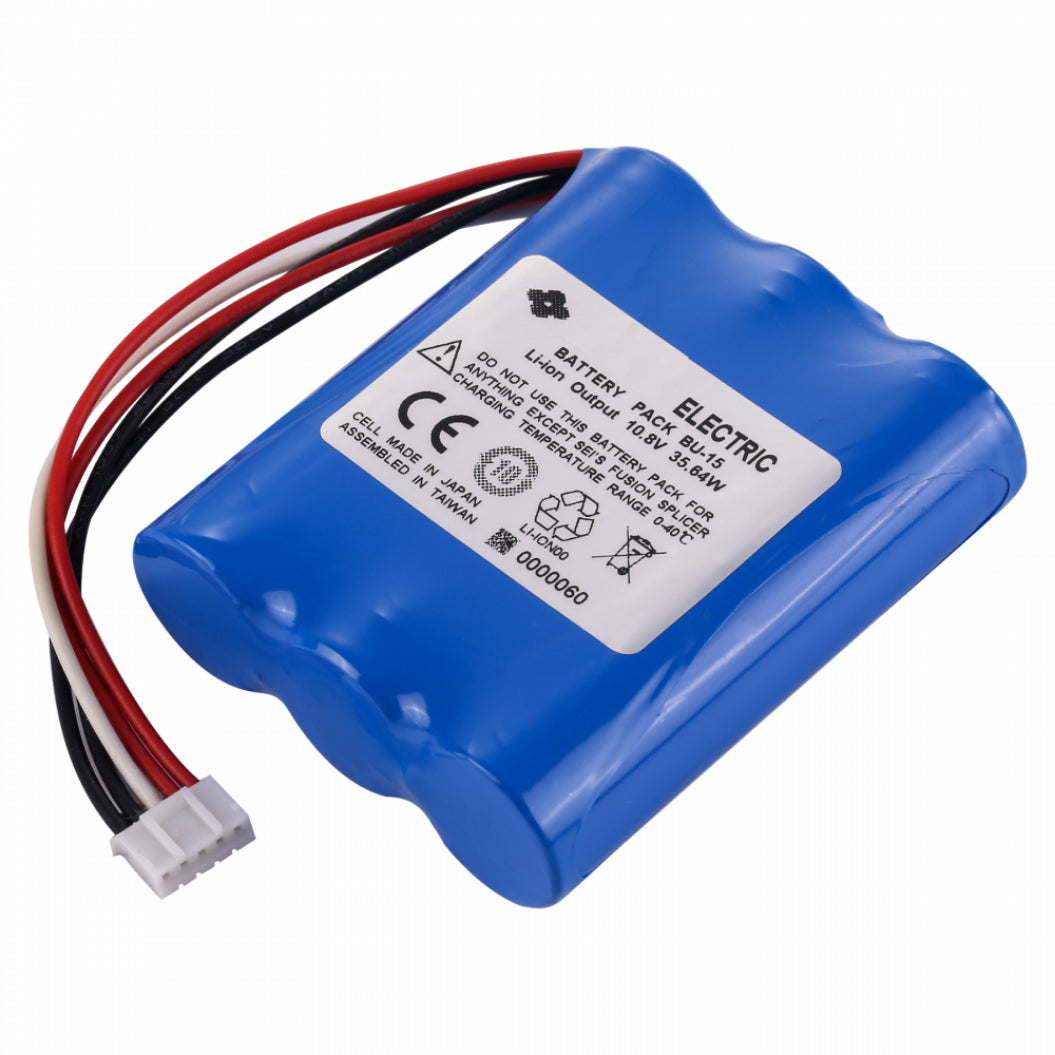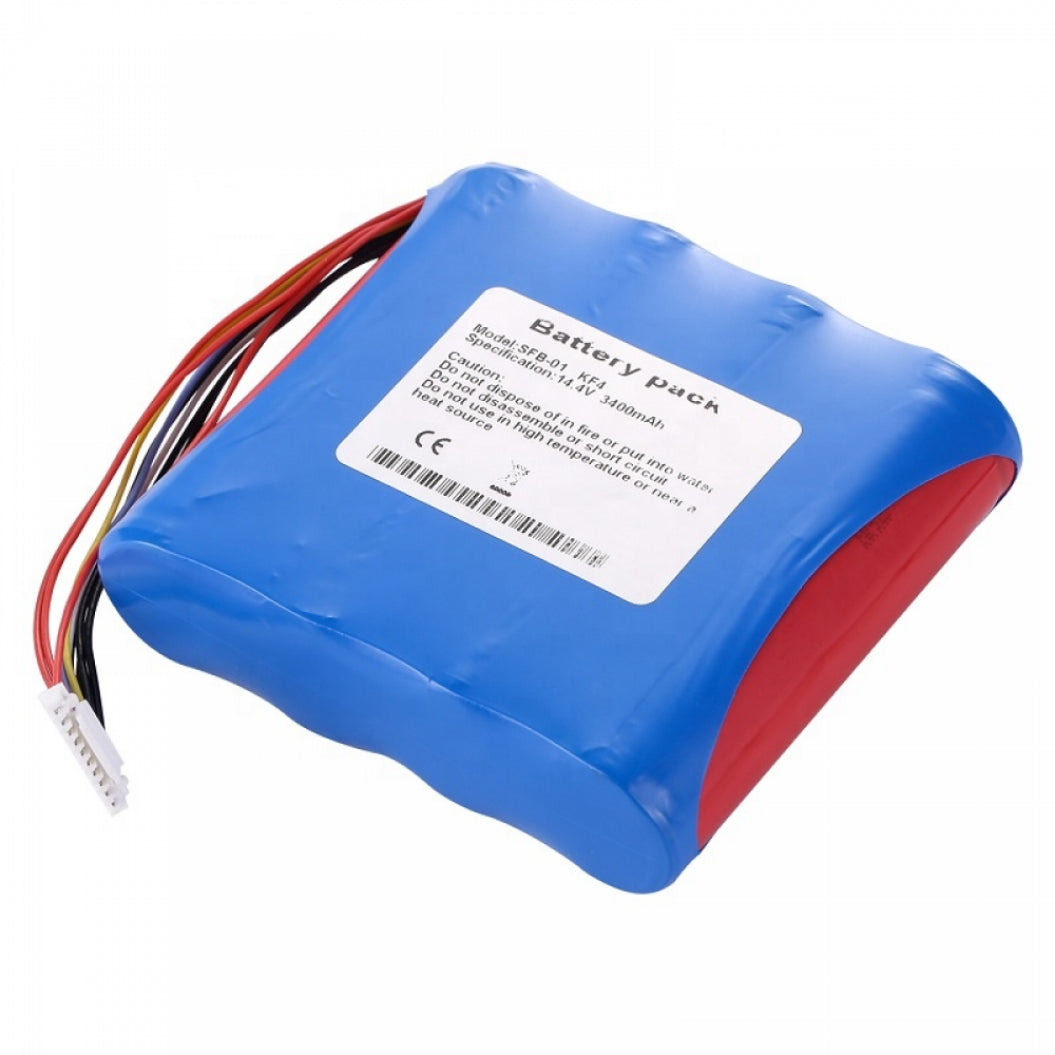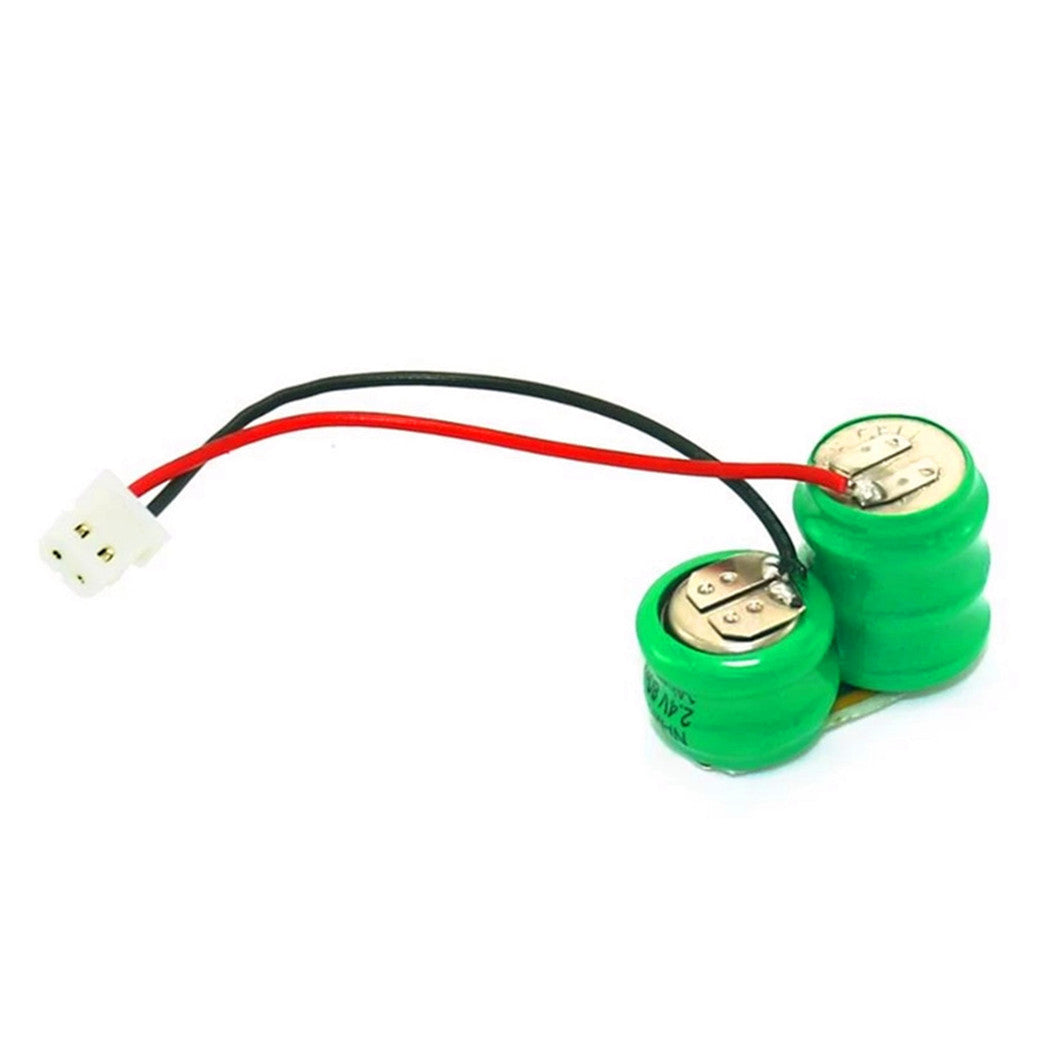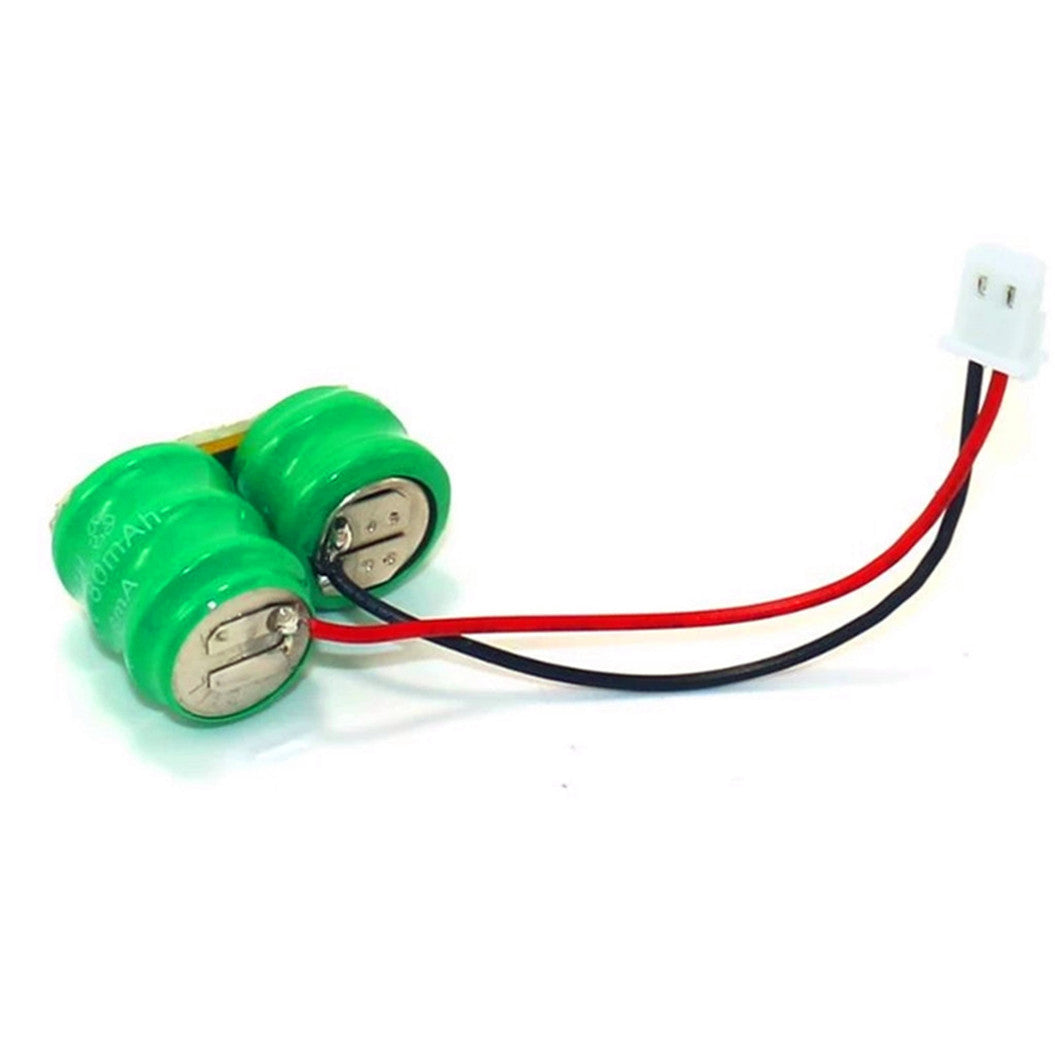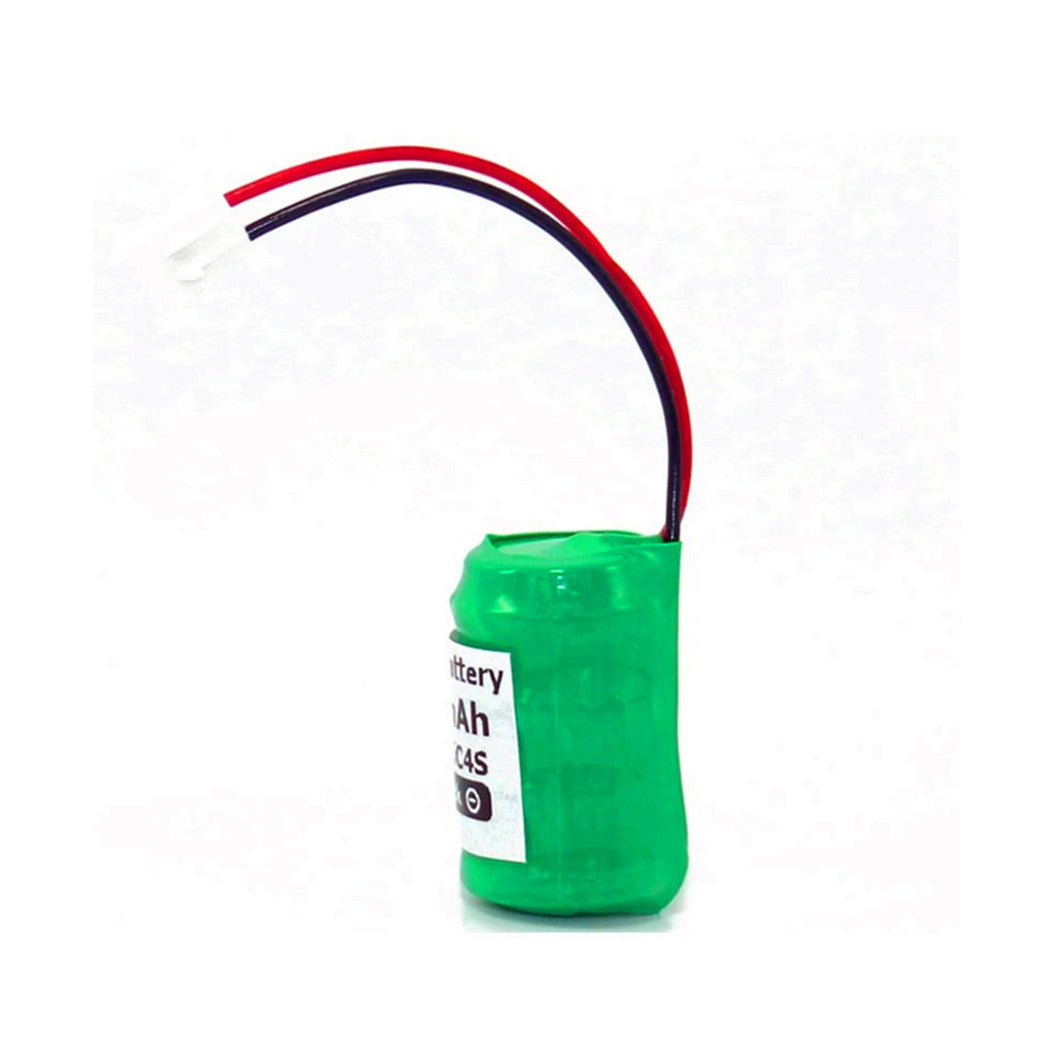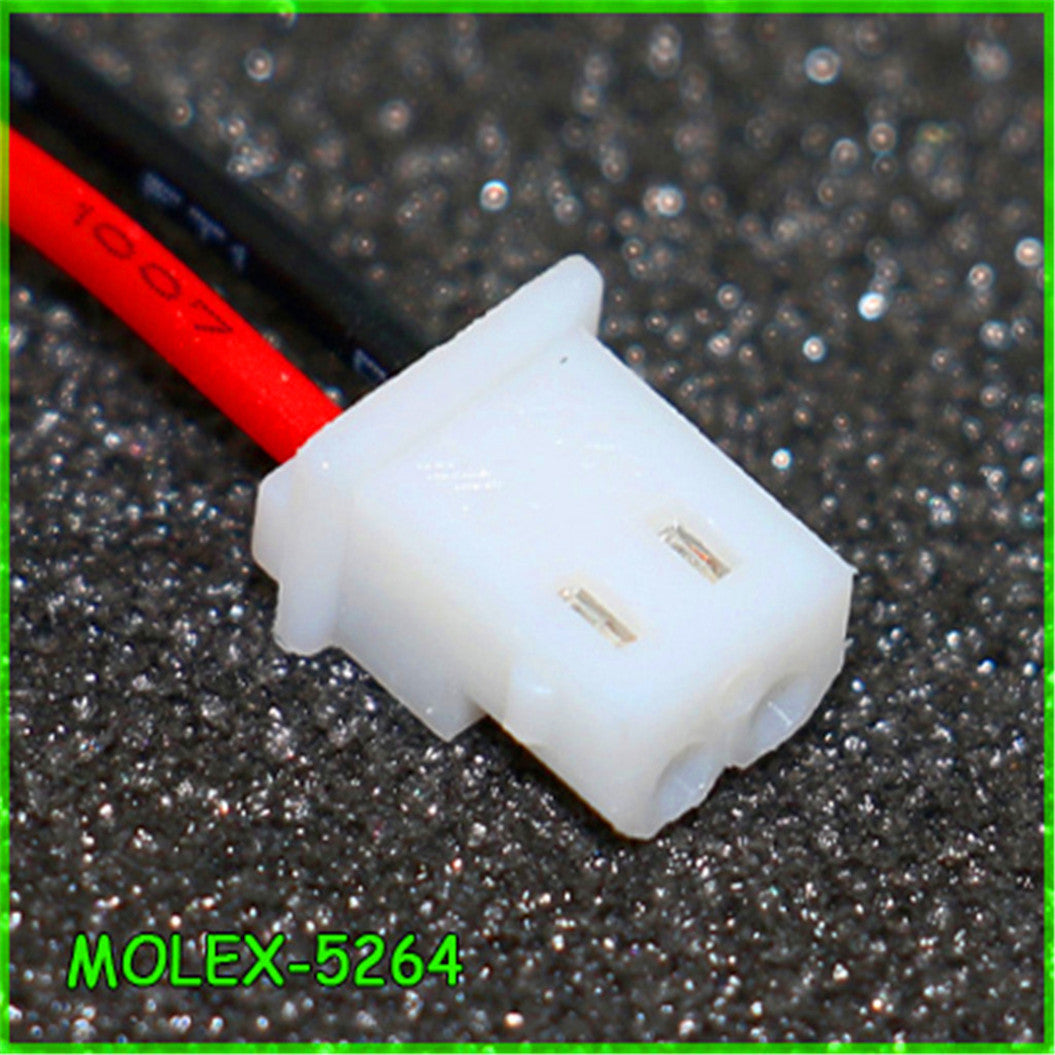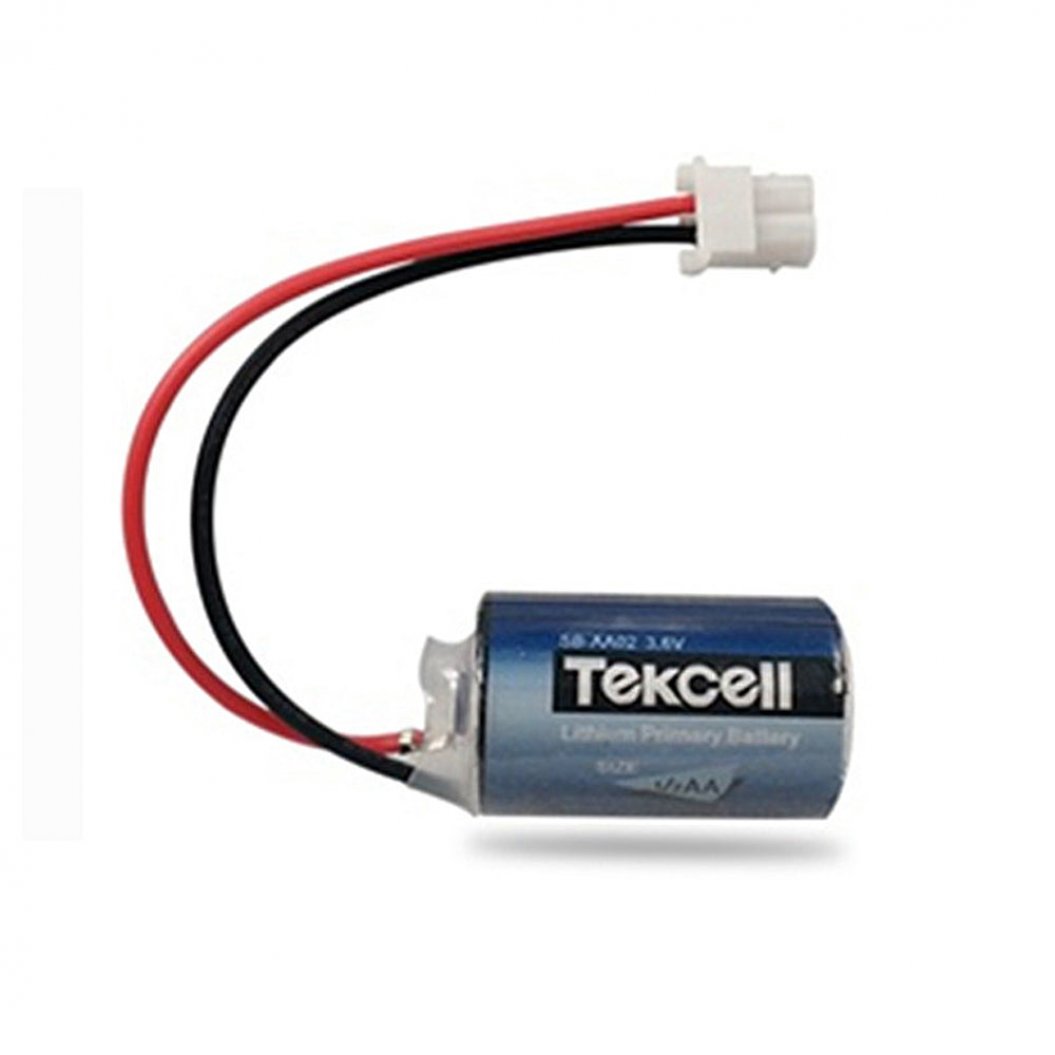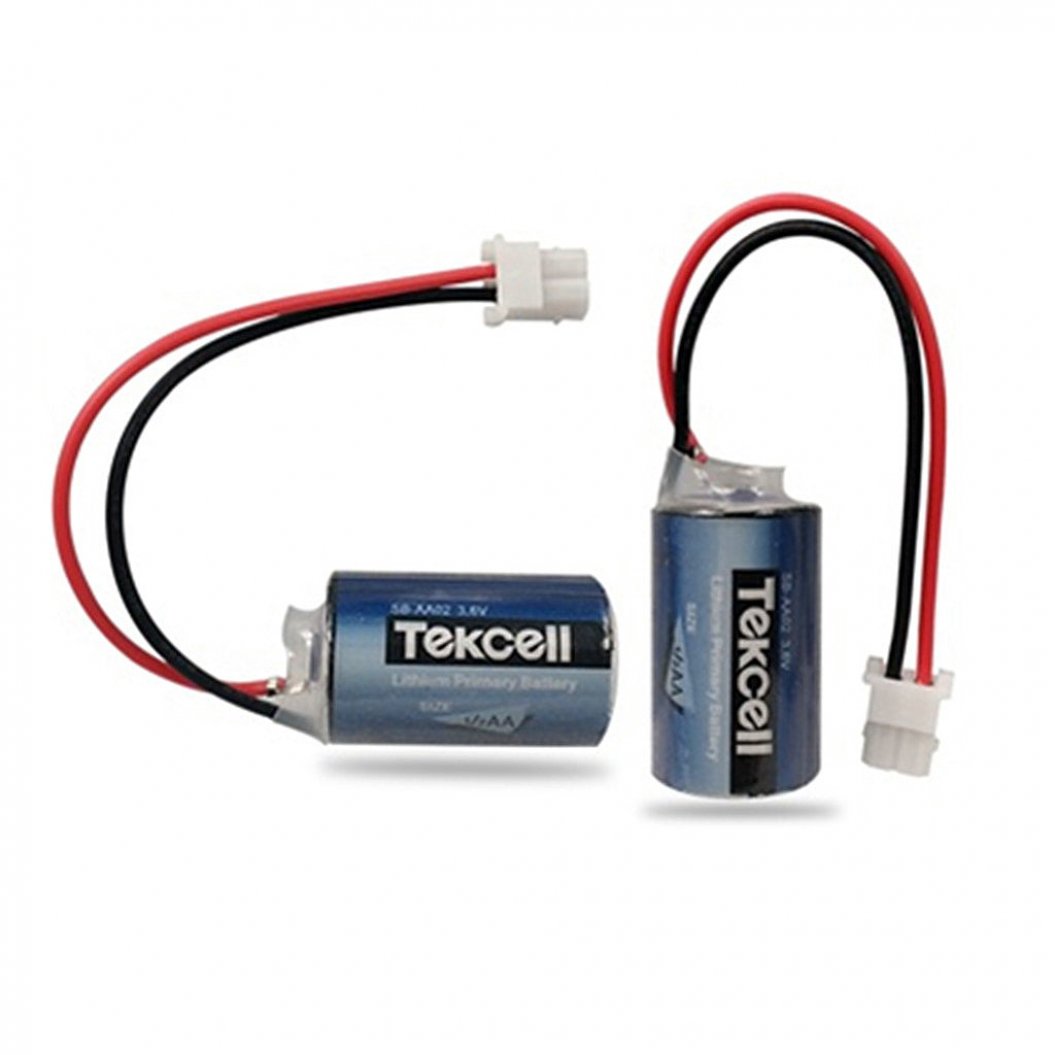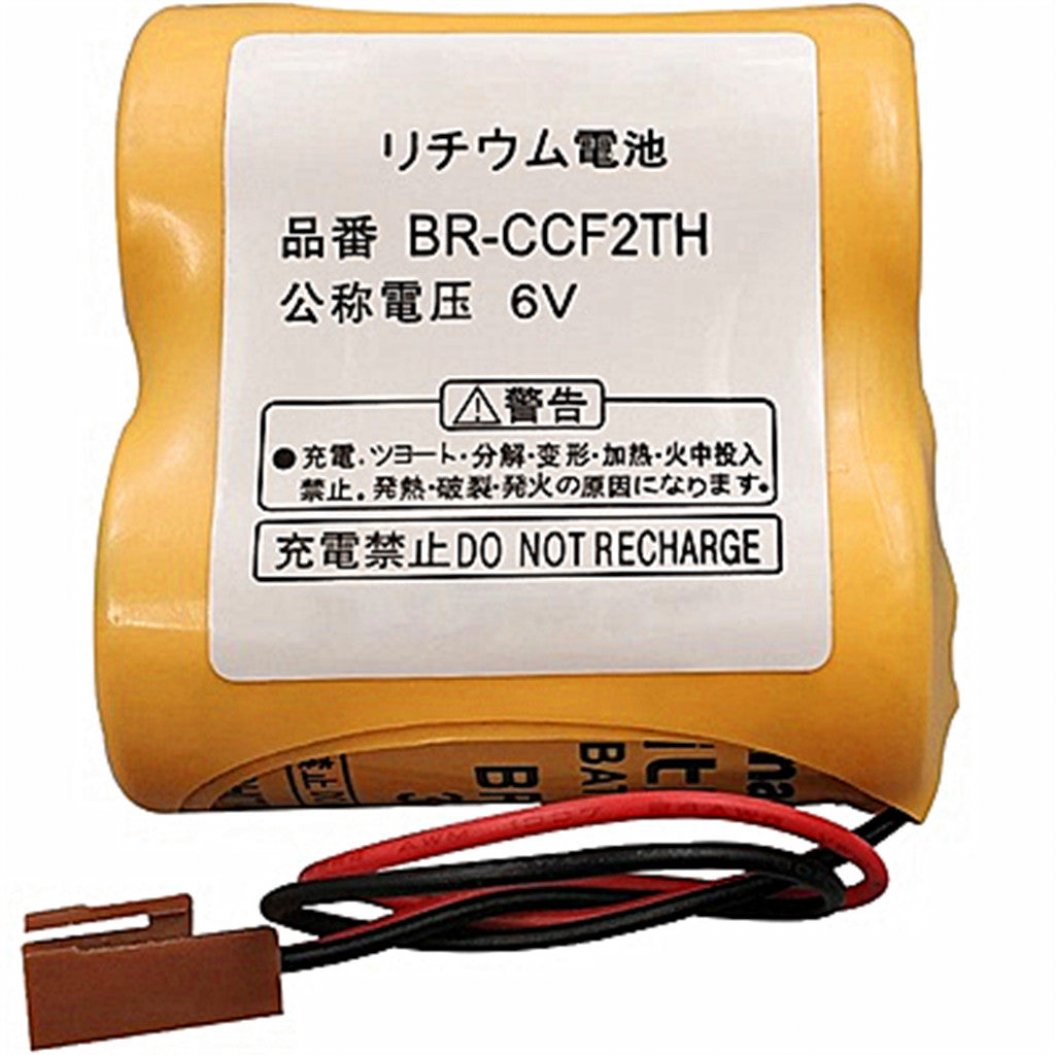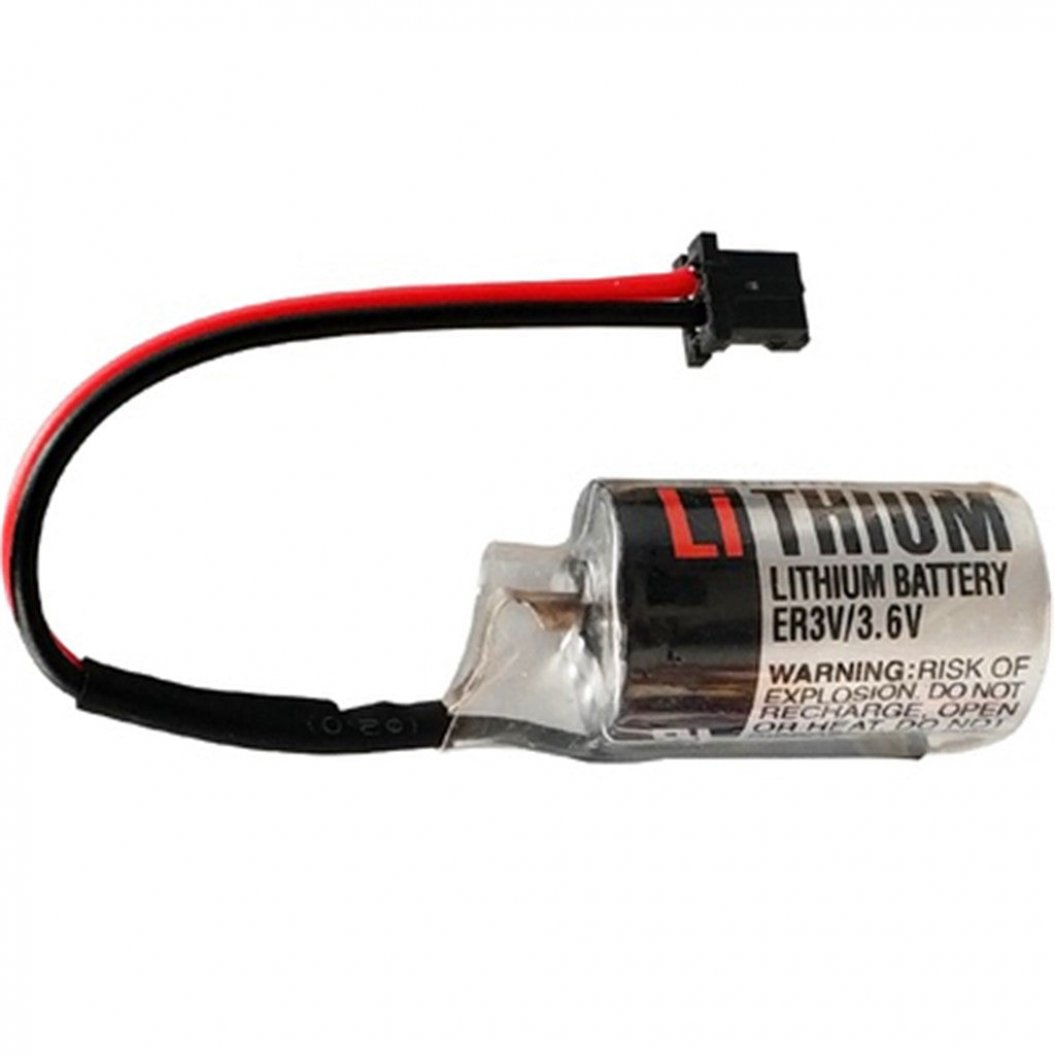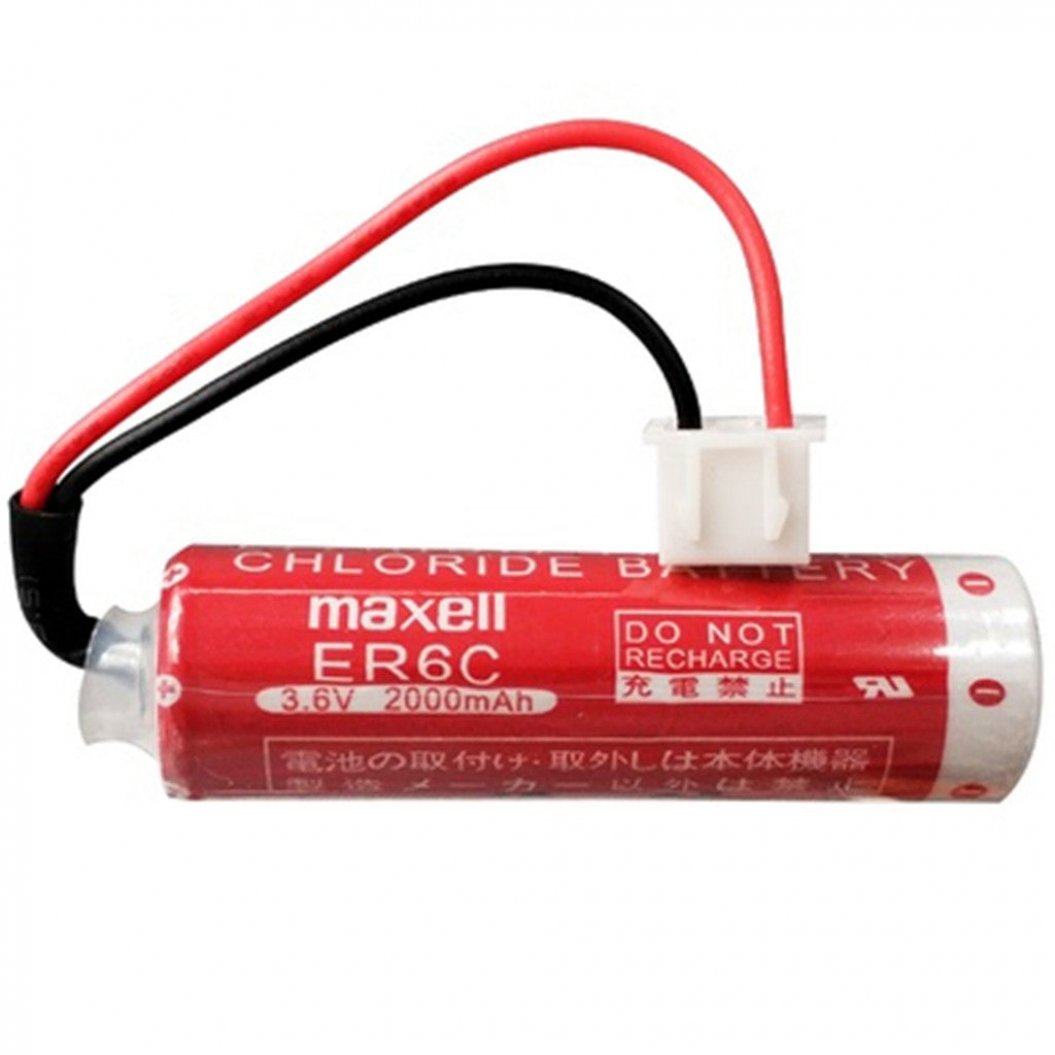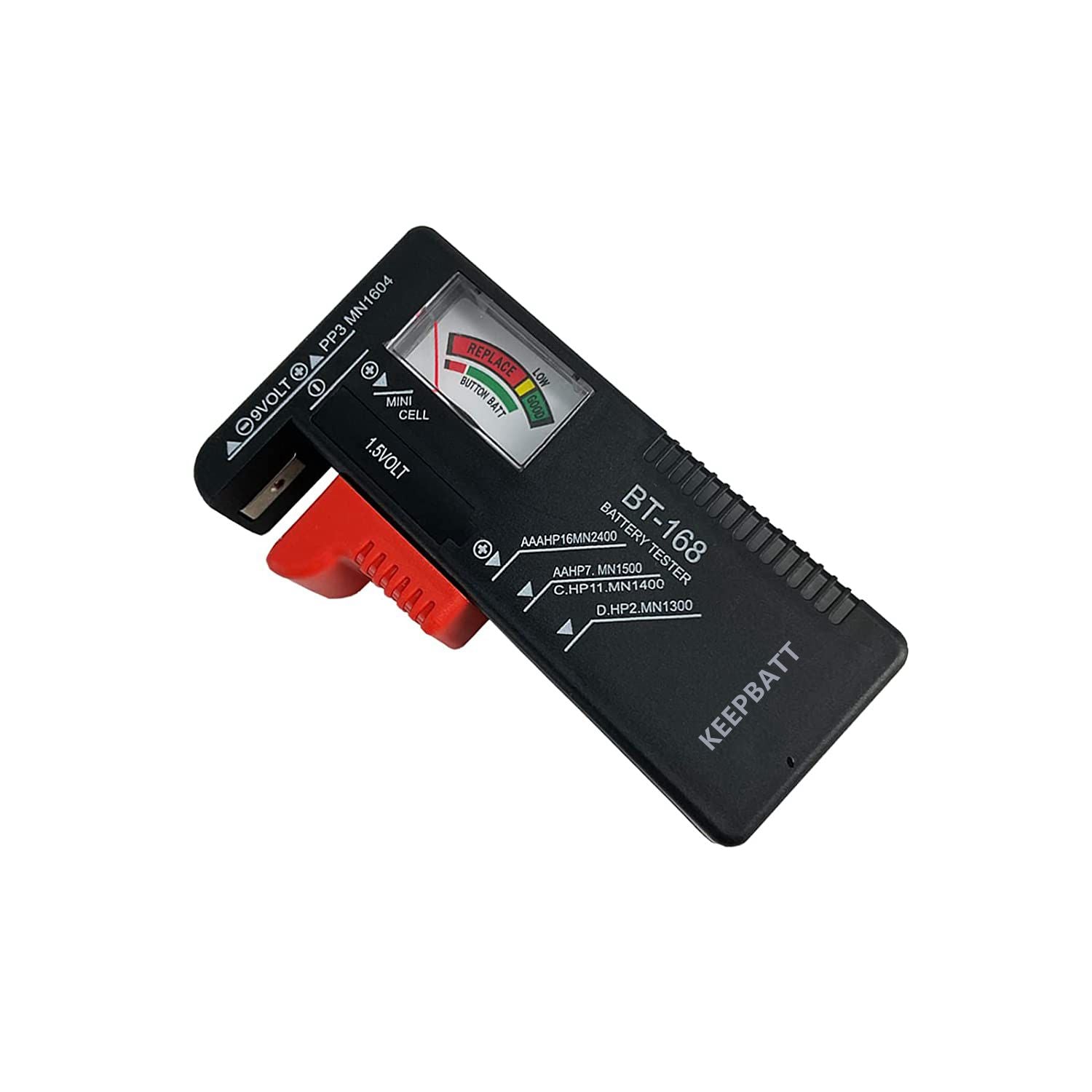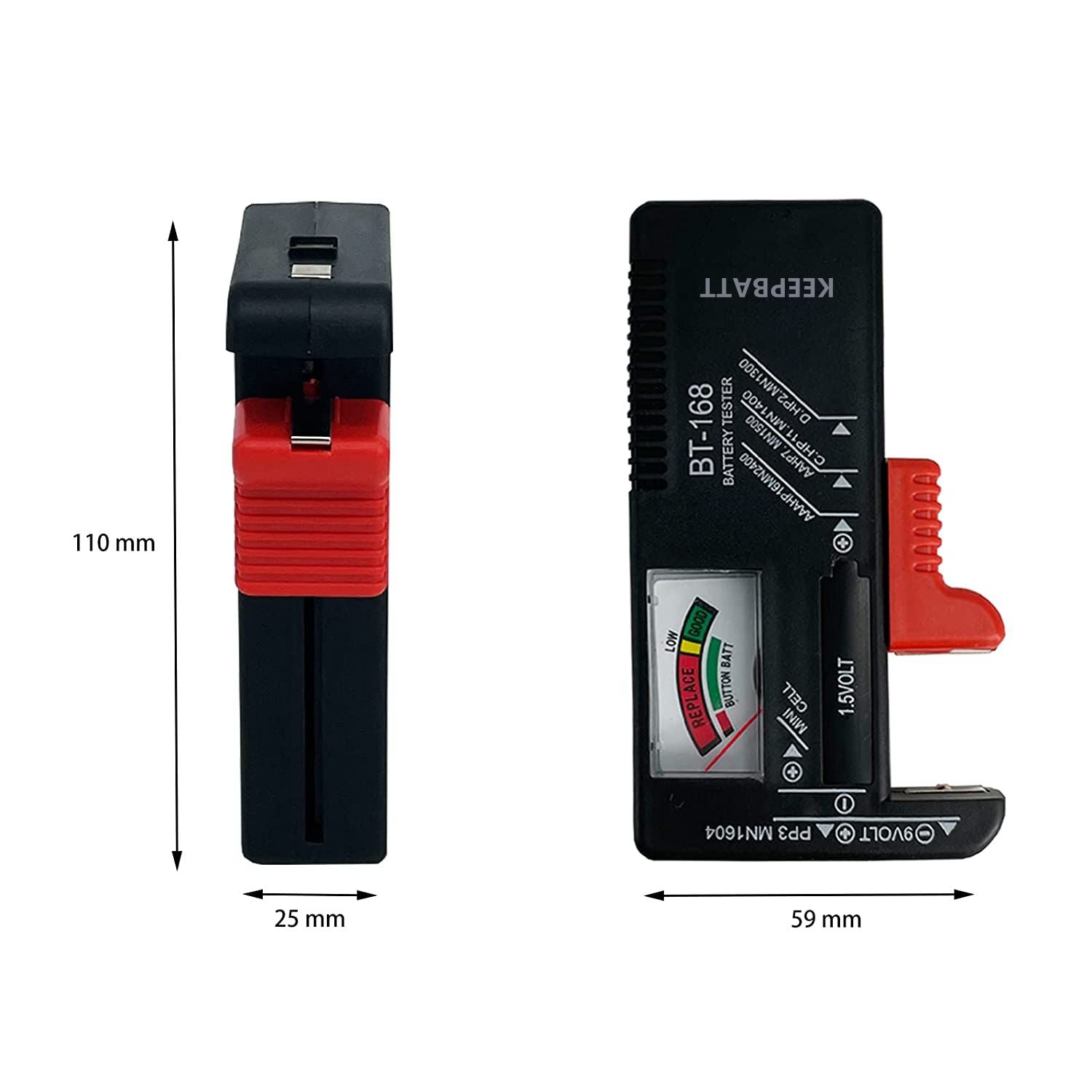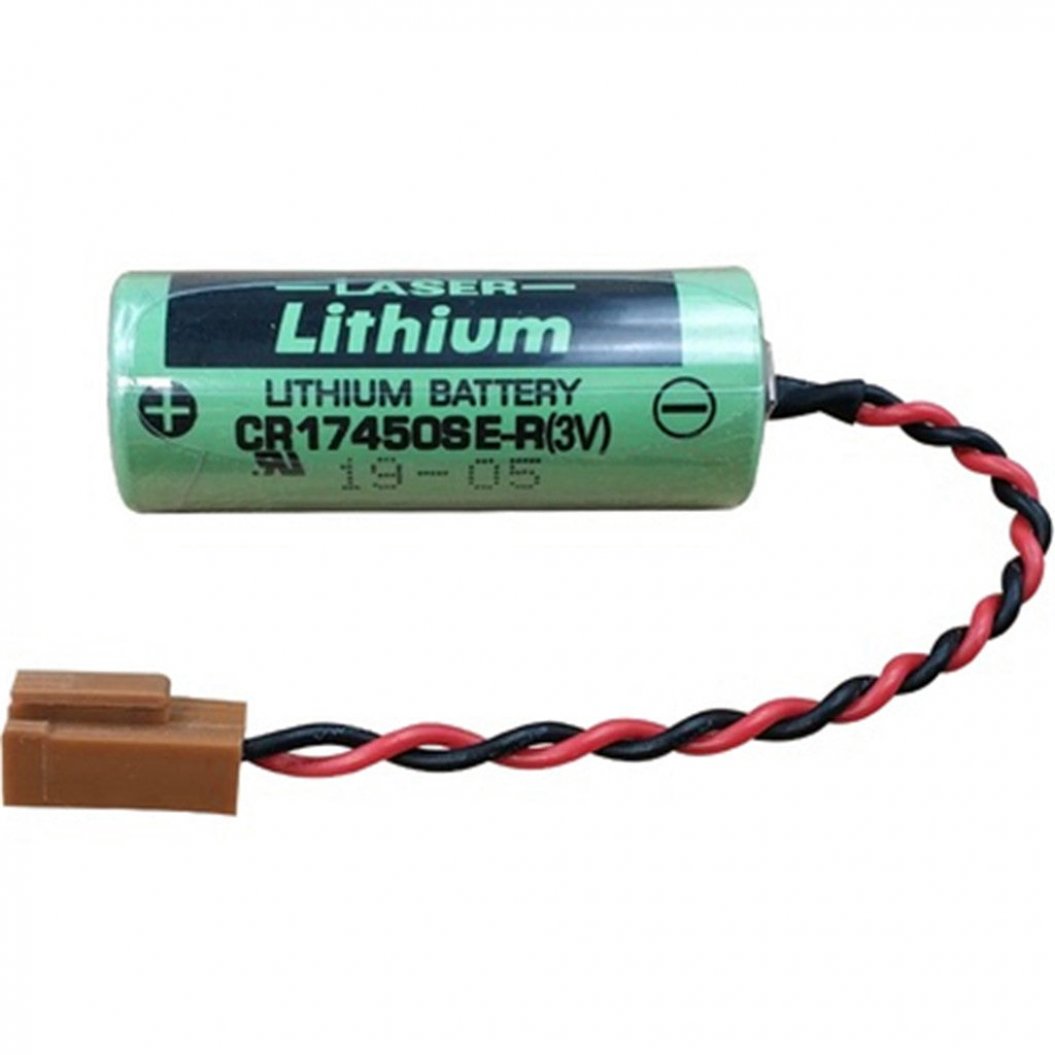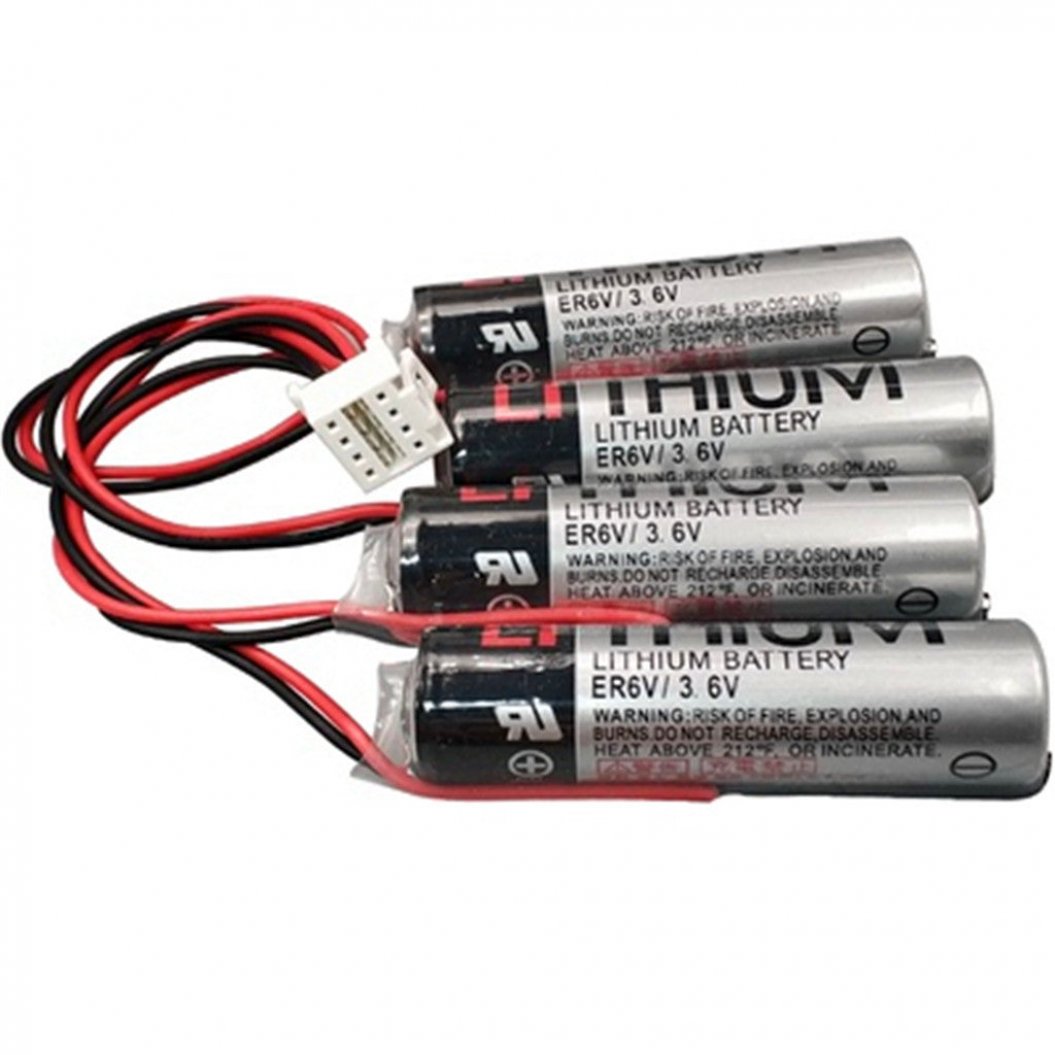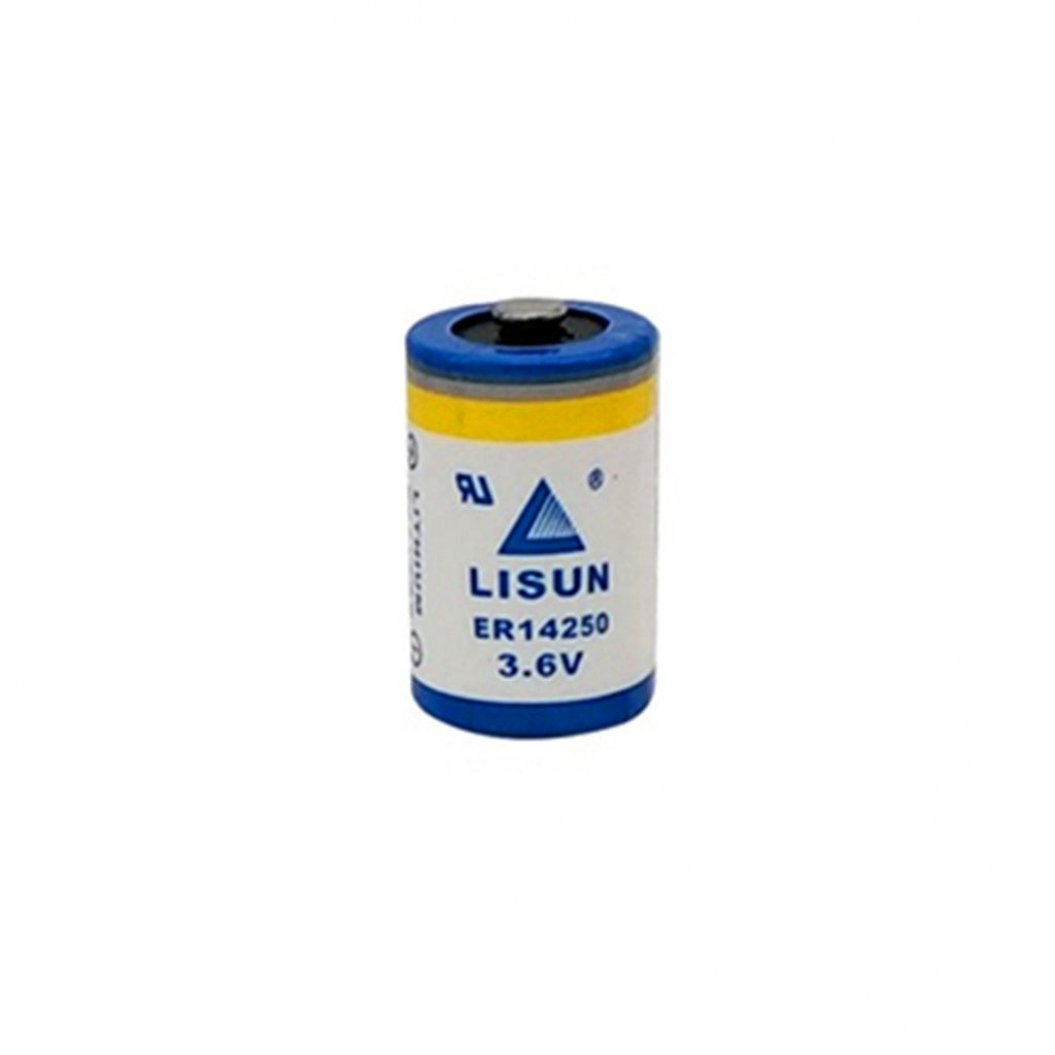-
공급업체:BATTERYINT
BU-15 10.8V 3400mAh Li-Ion 배터리 팩, Sumitomo T-400S T-400ST BU-15 융착 접속기 배터리
- 정가
- $75.99
- 정가
-
- 할인가
- $75.99
- 단가
- 단위
BU-15 10.8V 3400mAh Li-Ion 배터리 팩, Sumitomo T-40... -
공급업체:BATTERYINT
SFB-01 14.4V 3400mAh 리튬 이온 배터리 (ILSINTECH SFB 광섬유 융합 접속기 KF4 KF4A F1용)
- 정가
- $98.23
- 정가
-
- 할인가
- $98.23
- 단가
- 단위
SFB-01 14.4V 3400mAh 리튬 이온 배터리 (ILSINTECH SFB 광... -
공급업체:BATTERYINT
니켈-수소 배터리 6V 80mAh 버튼 셀 교체용 - BTicino Torcia Torce LN4380 / B
- 정가
- $6.99
- 정가
-
- 할인가
- $6.99
- 단가
- 단위
니켈-수소 배터리 6V 80mAh 버튼 셀 교체용 - BTicino Torcia To... -
공급업체:BATTERYINT
플러그가 있는 Ni-MH 버튼 배터리 4.8V 80mAh - PLC 비상 전원 공급용
- 정가
- $6.34
- 정가
-
- 할인가
- $6.34
- 단가
- 단위
플러그가 있는 Ni-MH 버튼 배터리 4.8V 80mAh - PLC 비상 전원 공급용... -
공급업체:BATTERYINT
새로운 대한민국 Tekcell SB-AA02 1/2AA 3.6V PLC 리튬 배터리, LS14250 대체
- 정가
- $7.99
- 정가
-
- 할인가
- $7.99
- 단가
- 단위
새로운 대한민국 Tekcell SB-AA02 1/2AA 3.6V PLC 리튬 배터리,... -
공급업체:BATTERYINT
새로운 Fanuc Br Ccf2th 6v A06b-6073-k001 머시닝 센터 공작 기계 배터리
- 정가
- $12.99
- 정가
-
- 할인가
- $12.99
- 단가
- 단위
새로운 Fanuc Br Ccf2th 6v A06b-6073-k001 머시닝 센터 공작... -
공급업체:BATTERYINT
새로운 ER3V/3.6V 리튬 배터리 OTC Oudish 5096-434 OTC 로봇 인코더 PLC 배터리
- 정가
- $7.99
- 정가
-
- 할인가
- $7.99
- 단가
- 단위
새로운 ER3V/3.6V 리튬 배터리 OTC Oudish 5096-434 OTC 로봇... -
공급업체:BATTERYINT
Maxell Wansheng ER6C AA 3.6V Mitsubishi PLC Fx2n 1n 프로그래머블 컨트롤러 F2-40bl 배터리
- 정가
- $9.99
- 정가
-
- 할인가
- $9.99
- 단가
- 단위
Maxell Wansheng ER6C AA 3.6V Mitsubishi PLC Fx2... -
공급업체:KEEPBATT
KEEPBATT 범용 배터리 테스터 체커, AAA AA C D 9V 1.5V 버튼셀 배터리용
- 정가
- $6.90
- 정가
-
- 할인가
- $6.90
- 단가
- 단위
KEEPBATT 범용 배터리 테스터 체커, AAA AA C D 9V 1.5V 버튼셀 ... -
공급업체:BATTERYINT
FANUC 시스템 CR17450SE-R 3V A98L-0031-0012 A02B-0200-K102 리튬 배터리
- 정가
- $8.99
- 정가
-
- 할인가
- $8.99
- 단가
- 단위
FANUC 시스템 CR17450SE-R 3V A98L-0031-0012 A02B-02... -
공급업체:BATTERYINT
ER6V/3.6V 배터리 - YASKAWA HW0470360-A Motoman 로봇용 배터리
- 정가
- $19.99
- 정가
-
- 할인가
- $19.99
- 단가
- 단위
ER6V/3.6V 배터리 - YASKAWA HW0470360-A Motoman 로봇용... -
공급업체:BATTERYINT
ER14250 3.6V 1200mAh 1/2AA 배터리 - Delta Programmer PLC IoT 위치 추적 장치용 배터리
- 정가
- $8.99
- 정가
-
- 할인가
- $8.99
- 단가
- 단위
ER14250 3.6V 1200mAh 1/2AA 배터리 - Delta Programm...
표시 37 -48 의 79 항목
1. 산업용 배터리란?
산업용 배터리는 대형 장비 및 산업용 애플리케이션에 사용되는 전력 저장 장치입니다. 이러한 배터리는 중장비, 비상 전원 시스템 및 기타 수요가 많은 장비를 지원하기 위해 오래 지속되는 에너지를 제공하도록 설계되었습니다.
일반 소비자용 배터리와 달리 산업용 배터리는 더 큰 용량과 더 긴 수명을 제공합니다. 일반적으로 납산, 니켈-카드뮴 또는 리튬 이온 기술을 사용하여 다양한 환경 및 운영 요구 사항을 수용합니다.
일반 소비자용 배터리와 달리 산업용 배터리는 더 큰 용량과 더 긴 수명을 제공합니다. 일반적으로 납산, 니켈-카드뮴 또는 리튬 이온 기술을 사용하여 다양한 환경 및 운영 요구 사항을 수용합니다.
2. 산업용 배터리와 일반 배터리에는 차이가 있나요?
산업용 배터리와 기존 배터리 사이에는 몇 가지 주요 차이점이 있습니다. 첫째, 산업용 배터리, 예를 들어 산업용 리튬 배터리는 일반적으로 크기와 용량이 더 큽니다. 둘째, 기존 배터리보다 내구성과 신뢰성이 뛰어나며 극한 환경과 빈번한 충전/방전 주기를 견딜 수 있습니다.
또한 산업용 배터리는 특정 산업용 애플리케이션의 엄격한 요구 사항을 충족하도록 설계되고 재료가 선택되는 반면, 기존 배터리는 일상적인 가전제품에 더 일반적으로 사용됩니다.
또한 산업용 배터리는 특정 산업용 애플리케이션의 엄격한 요구 사항을 충족하도록 설계되고 재료가 선택되는 반면, 기존 배터리는 일상적인 가전제품에 더 일반적으로 사용됩니다.
3. 산업용 배터리는 더 오래 지속될까?
예, 산업용 AA 배터리를 포함한 산업용 배터리는 일반적으로 기존 배터리보다 오래갑니다. 이는 산업용 배터리가 지속적인 작동과 무거운 하중을 처리하도록 설계된 내구성 있는 소재를 사용하기 때문입니다.
결과적으로 산업용 배터리는 초기 비용이 더 높음에도 불구하고 장기적으로 내구성과 경제성 면에서 우수한 경향이 있습니다.
결과적으로 산업용 배터리는 초기 비용이 더 높음에도 불구하고 장기적으로 내구성과 경제성 면에서 우수한 경향이 있습니다.
4. 산업용 배터리는 몇 번 충전할 수 있나요?
산업용 배터리의 충전/방전 주기 수는 배터리 유형에 따라 크게 달라집니다.
예를 들어, 산업용 리튬 배터리는 약 500~1,500회의 충전/방전 주기를 수행할 수 있는 반면, 니켈-카드뮴 배터리는 일반적으로 약 500~1,000회의 주기를 견딜 수 있습니다.
리튬-철-인(LiFePO4) 배터리는 충전/방전 성능 면에서 더 뛰어나 2,000~5,000회의 주기를 달성합니다.
예를 들어, 산업용 리튬 배터리는 약 500~1,500회의 충전/방전 주기를 수행할 수 있는 반면, 니켈-카드뮴 배터리는 일반적으로 약 500~1,000회의 주기를 견딜 수 있습니다.
리튬-철-인(LiFePO4) 배터리는 충전/방전 성능 면에서 더 뛰어나 2,000~5,000회의 주기를 달성합니다.
5. 산업용 배터리는 어떻게 충전하나요?
산업용 배터리를 올바르게 충전하려면 다음 단계를 따르세요.
- 사용하는 충전기가 산업용 배터리 유형과 일치하는지 확인하세요. 충전기의 전압 및 전류 설정을 산업용 배터리 팩의 사양에 맞게 유지하세요.
- 충전 과정 동안 제조업체의 지침을 준수하세요. 산업용 배터리를 손상시킬 수 있는 과충전과 같은 위험을 피하세요.
- 배터리와 충전기의 상태를 정기적으로 확인하세요. 이렇게 하면 충전 과정이 효율적이고 안전합니다.
- 사용하는 충전기가 산업용 배터리 유형과 일치하는지 확인하세요. 충전기의 전압 및 전류 설정을 산업용 배터리 팩의 사양에 맞게 유지하세요.
- 충전 과정 동안 제조업체의 지침을 준수하세요. 산업용 배터리를 손상시킬 수 있는 과충전과 같은 위험을 피하세요.
- 배터리와 충전기의 상태를 정기적으로 확인하세요. 이렇게 하면 충전 과정이 효율적이고 안전합니다.
6. 산업용 배터리는 어떻게 보관하나요?
산업용 배터리를 사용하지 않는 경우 다음과 같은 방법으로 보관할 수 있습니다.
- 산업용 배터리는 건조하고 통풍이 잘되는 환경에 보관해야 합니다. 손상을 방지하기 위해 극한의 온도와 직사광선으로부터 보호해야 합니다.
- 산업용 배터리 팩을 보관하기 전에 권장 상태로 충전하고 일반적으로 50~80%의 충전 수준을 유지합니다. 이렇게 하면 과방전을 방지하고 배터리 수명을 연장하는 데 도움이 됩니다.
- 배터리의 충전 수준과 전반적인 상태를 정기적으로 확인하는 것이 중요합니다. 이렇게 하면 배터리가 다시 서비스에 투입될 때에도 계속 잘 작동할 수 있습니다.
- 산업용 배터리는 건조하고 통풍이 잘되는 환경에 보관해야 합니다. 손상을 방지하기 위해 극한의 온도와 직사광선으로부터 보호해야 합니다.
- 산업용 배터리 팩을 보관하기 전에 권장 상태로 충전하고 일반적으로 50~80%의 충전 수준을 유지합니다. 이렇게 하면 과방전을 방지하고 배터리 수명을 연장하는 데 도움이 됩니다.
- 배터리의 충전 수준과 전반적인 상태를 정기적으로 확인하는 것이 중요합니다. 이렇게 하면 배터리가 다시 서비스에 투입될 때에도 계속 잘 작동할 수 있습니다.
7. 산업용 배터리를 맞춤 제작할 수 있는가?
예, 산업용 AA 배터리를 포함한 산업용 배터리는 특정 요구 사항을 충족하도록 사용자 정의할 수 있습니다. 일반적으로 배터리 크기, 모양, 전압, 용량 및 연결 방법을 포함한 다양한 구성 옵션을 제공하여 다양한 산업용 애플리케이션 및 장비 요구 사항에 맞게 조정할 수 있습니다.
또한 고객은 납산, 니켈-카드뮴 또는 리튬 이온과 같은 특정 배터리 기술을 선택하여 특정 크기, 성능 및 내구성 요구 사항을 충족할 수 있습니다.
또한 고객은 납산, 니켈-카드뮴 또는 리튬 이온과 같은 특정 배터리 기술을 선택하여 특정 크기, 성능 및 내구성 요구 사항을 충족할 수 있습니다.

